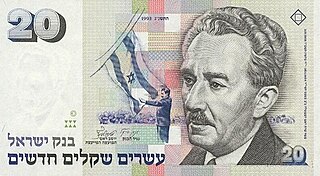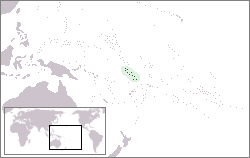
The United Nations Security Council (UNSC) is one of the six principal organs of the United Nations (UN) and is charged with ensuring international peace and security, recommending the admission of new UN members to the General Assembly, and approving any changes to the UN Charter. Its powers as outlined in the United Nations Charter include establishing peacekeeping operations, enacting international sanctions, and authorizing military action. The UNSC is the only UN body with authority to issue resolutions that are binding on member states.

The member states of the United Nations comprise 193 sovereign states. The United Nations (UN) is the world's largest intergovernmental organization. All members have equal representation in the UN General Assembly.

The Charter of the United Nations (UN) is the foundational treaty of the United Nations. It establishes the purposes, governing structure, and overall framework of the UN system, including its six principal organs: the Secretariat, the General Assembly, the Security Council, the Economic and Social Council, the International Court of Justice, and the Trusteeship Council.

A United Nations Security Council resolution (UNSCR) is a United Nations resolution adopted by the fifteen members of the Security Council (UNSC); the United Nations (UN) body charged with "primary responsibility for the maintenance of international peace and security".
A United Nations General Assembly resolution is a decision or declaration voted on by all member states of the United Nations in the General Assembly.
China is one of the members of the United Nations and is one of five permanent members of its Security Council. One of the victorious Allies of World War II, the Republic of China (ROC) joined the UN upon its founding in 1945. The subsequent resumption of the Chinese Civil War between the government of Republic of China and the rebel forces of the Chinese Communist Party, led to the latter's victory on the mainland and the establishment of the People's Republic of China (PRC) in 1949. Nearly all of Mainland China was soon under its control and the ROC government retreated to the island of Taiwan.

The United Nations General Assembly Resolution 2758 was passed in response to the United Nations General Assembly Resolution 1668 that required any change in China's representation in the UN be determined by a two-thirds vote referring to Article 18 of the UN Charter. The resolution, passed on 25 October 1971, recognized the People's Republic of China as "the only legitimate representative of China to the United Nations" and removed "the representatives of Chiang Kai-shek" from the United Nations.

A United Nations resolution is a formal text adopted by a United Nations (UN) body. Although any UN body can issue resolutions, in practice most resolutions are issued by the Security Council or the General Assembly.
The United Nations General Assembly has granted observer status to international organizations, entities, and non-member states, to enable them to participate in the work of the United Nations General Assembly, though with limitations. The General Assembly determines the privileges it will grant to each observer, beyond those laid down in a 1986 Conference on treaties between states and international organizations. Exceptionally, the European Union (EU) was in 2011 granted the right to speak in debates, to submit proposals and amendments, the right of reply, to raise points of order and to circulate documents, etc. As of May 2011, the EU is the only international organization to hold these enhanced rights, which has been likened to the rights of full membership, short of the right to vote.

The Russian Federation succeeded to the Soviet Union's seat, including its permanent membership on the Security Council in the United Nations after the 1991 dissolution of the Soviet Union, which originally co-founded the UN in 1945. The succession was supported by the USSR's former members and was not objected to by the UN membership; Russia accounted for more than 75% of the Soviet Union's economy, the majority of its population and 75% of its land mass; in addition, the history of the Soviet Union began in Russia with the October Revolution in 1917 in Petrograd. If there was to be a successor to the Soviet seat on the Security Council among the former Soviet republics, these factors made Russia seem a logical choice. Nonetheless, due to the rather inflexible wording of the UN Charter and its lack of provision for succession, the succession's technical legality has been questioned by some international lawyers.

The United Nations Security Council veto power is the power of the five permanent members of the UN Security Council to veto any "substantive" resolution. They also happen to be the nuclear-weapon states (NWS) under the terms of the Treaty on the Non-Proliferation of Nuclear Weapons. However, a permanent member's abstention or absence does not prevent a draft resolution from being adopted. This veto power does not apply to "procedural" votes, as determined by the permanent members themselves. A permanent member can also block the selection of a Secretary-General, although a formal veto is unnecessary since the vote is taken behind closed doors.

As of 25 March 2024, there are 193 member states in the United Nations (UN), each of which is a member of the United Nations General Assembly.

United Nations General Assembly Resolution 273 was adopted on May 11, 1949, during the second part of the third session of the United Nations General Assembly, to admit the State of Israel to membership in the United Nations. It was passed following the approval of UN Security Council Resolution 69 on March 4, 1949.
United Nations Security Council Resolution 69 was adopted on 4 March 1949. Having received and considered Israel's application for membership in the United Nations, the Security Council decided that in its judgement Israel was a peace-loving state and was able and willing to carry out the obligations contained in the Charter and it therefore recommended to the General Assembly that it grant membership to Israel.

Chapter IV of the United Nations Charter contains the Charter's provisions dealing with the UN General Assembly, specifically its composition, functions, powers, voting, and procedures.

United Nations Security Council resolution 1290 was adopted on 17 February 2000. Resolution 1290 examined Tuvalu's application to become the 189th member of the United Nations (UN). Tuvalu achieved independence in 1978 after over eighty years of British colonial rule. The country had struggled economically, and it took the 2000 sale of Tuvalu's Internet country code top-level domain .tv for the nation to be able to afford UN membership. Resolution 1290 was adopted unopposed, although China abstained due to concerns over Tuvalu's relationship with Taiwan.

The permanent members of the United Nations Security Council are the five sovereign states to whom the UN Charter of 1945 grants a permanent seat on the UN Security Council: China, France, Russia, the United Kingdom, and the United States.
Serbia joined the United Nations on November 1, 2000, as the Federal Republic of Yugoslavia. Originally the previous Yugoslav state was one of the original 51 member states of the United Nations.
The People's Republic of China was established in 1949 and was not recognized by the United Nations (UN) as the legitimate government of China until 1971. Prior to then, the Republic of China represented the interests of China, with both it and the PRC claiming to be the only legitimate representative of whole China. In 1950, the PRC requested its admission to the UN and the expulsion of the representatives of the Kuomintang from the United Nations Security Council; the request was unsuccessful, after which the Soviet Union initiated a boycott of the UN. Following that, annual motions for the PRC's recognition were introduced by a variety of UN member states, until the PRC was formally recognized in October 1971.
Expulsion from the United Nations is a procedure under Article 6, Chapter II of the United Nations Charter when a member state of the United Nations can be expelled from the organization. This can be done when a member state has persistently violated the principles of the United Nations Charter. To date, only one member state has been expelled, the Republic of China (Taiwan) under General Assembly Resolution 2758, and replaced by the People's Republic of China (PRC) in 1971.










